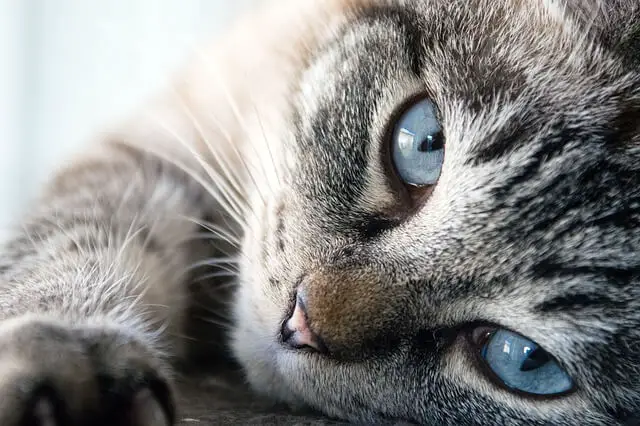Most Common Internal Parasites in Cats
25.02.2022.
One of the most critical things cat owners need to ensure is that their cats are parasite-free. Parasite prevention is a crucial task cat owners have, and we all should be aware of the most common internal parasites in cats. Some of them can be pretty dangerous, and if cat owners fail to clear them from their cats, they can cause severe health problems. If you don’t know which parasites might infect your cat, here are a few you should know about.
1. Roundworms
The first internal parasite we will mention in this list is the roundworm. These parasites are one of the most common ones in cats. They don’t need an intermediary host, like fleas, to spread from cat to cat. The cat can get it from contacting the feces of another infected animal. These parasites are not that dangerous for adult cats, but they can cause issues like improper development in kittens. Kittens can get infected with roundworms through nursing. Roundworms can be present in the mother’s milk.

2. Heartworms
The best news about heartworms in cats is that the infection is not that common. However, some areas of the US have an increased number of heartworm disease cases. These parasites are spread through mosquito bites. Mosquitoes can “inject” the cat with heartworm larvae, which will travel through the cat’s bloodstream until they eventually reach the heart. Heartworms can cause rapid breathing, vomiting, lethargy, coughing, and weight loss. The most severe cases can result in sudden death, and the diagnosis is made post mortem.
3. Hookworms
Hookworms are nasty parasites that can infect cats in two ways - through the mouth and through the cat’s skin. If a cat eats something that contains hookworm larvae, like feces, it can get infected. In many cases, hookworms enter the cat’s body through its feet. These parasites will attach themselves to the cat’s small intestine, where they will feed on blood. They can reach 1 inch in length, but if the cat is untreated, parasites can cause severe anemia. Another issue with hookworm infection is secondary bacterial infections when parasites enter the cat’s body through the skin.
4. Tapeworms
Tapeworms are one of the largest parasites your cat can get infected with. These parasites need an intermediate host, and it can only infect your cat if a cat eats an infected flea, rodent, or bird. There are several species of these parasites. The most common one is Dipylidium caninum, but the one to keep a close eye on is the Echinococcus. Echinococcus is zoonotic, which means it can infect humans. Tapeworms are more common in outdoor cats that hunt prey like mice, rats, or birds. Tapeworm infection can lead to constipation, diarrhea, vomiting, and affect the growth and development of kittens.

5. Coccidia
Unlike the first four parasites on this list, coccidia is not a worm. Coccidia is a protozoan parasite. It is a single-celled organism that can infect a cat and cause a disease called coccidiosis. Most healthy adult cats show little to no problems if infected with this parasite. However, if kittens get infected, the parasite can destroy their intestinal lining and cause mucousy diarrhea and stunted growth.
6. Giardia
Giardia is another protozoan parasite that can infect cats. However, unlike coccidia, which infects nearly all cats, giardia is not that common. It only infects about 5% of cats. Even if the infection happens, many cats show little to no signs. Still, some cats can develop chronic diarrhea. Infected cats become a source of infection, which means regular parasite cleaning should be done to make sure the environment is safe for everyone. Cats can get infected by ingesting a Giardia cyst. If you have a cat with this parasite, you should wash your hands regularly to avoid infections.
How to prevent parasite infections in cats?
We already mentioned in the beginning, parasite prevention is one of the most critical tasks cat owners have. The best thing to do is talk to your vet and ask for their advice. They will tell you which products to use for specific parasites. In fact, many cat dewormers require prescriptions.
An excellent way to prevent your cat from getting intestinal parasites is by preventing fleas, ticks, and mosquito bites. It is a good idea not to allow your cat to eat dead animals that might carry these parasites. If you notice something’s wrong with your cat and you suspect it might have parasites, prompt deworming treatment should be done. It is best to periodically deworm your cat to ensure there are no issues and parasites affecting the cat’s health.
World Cat Finder Team







Share